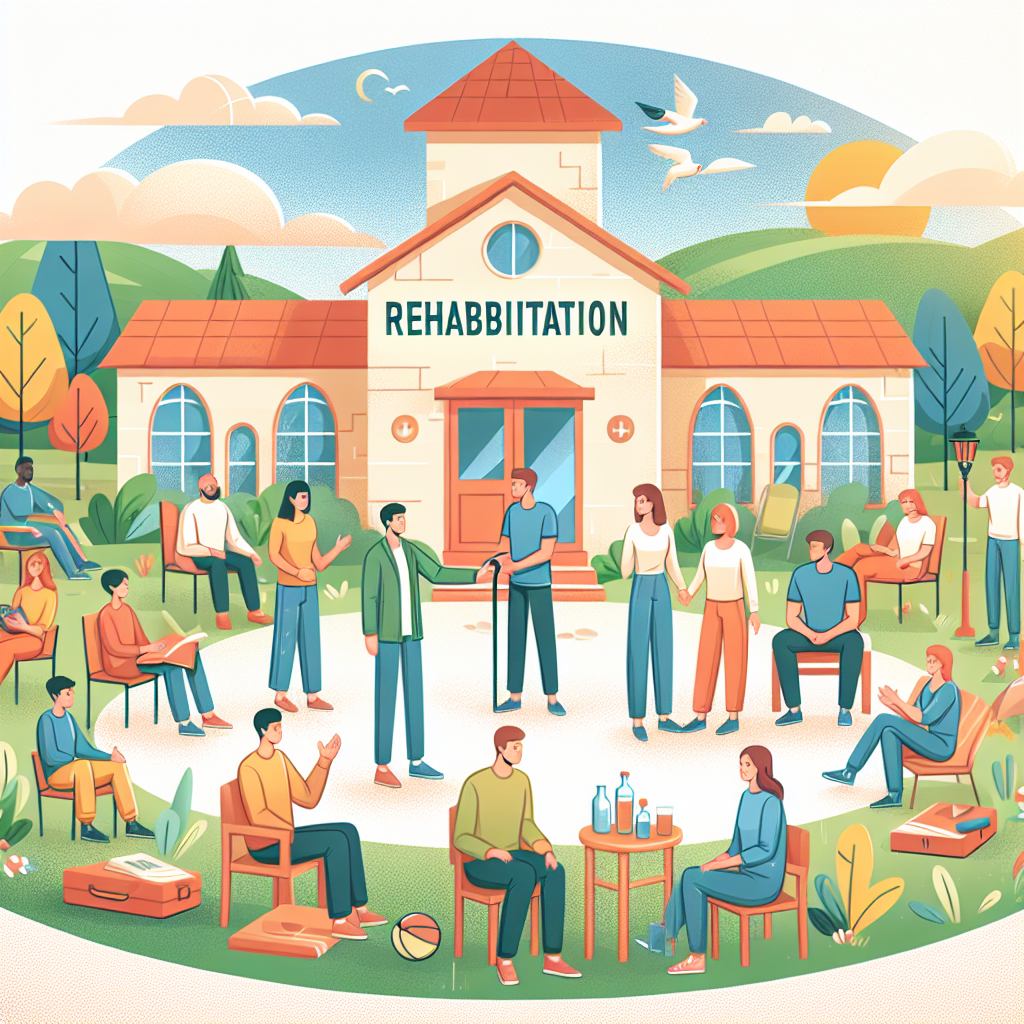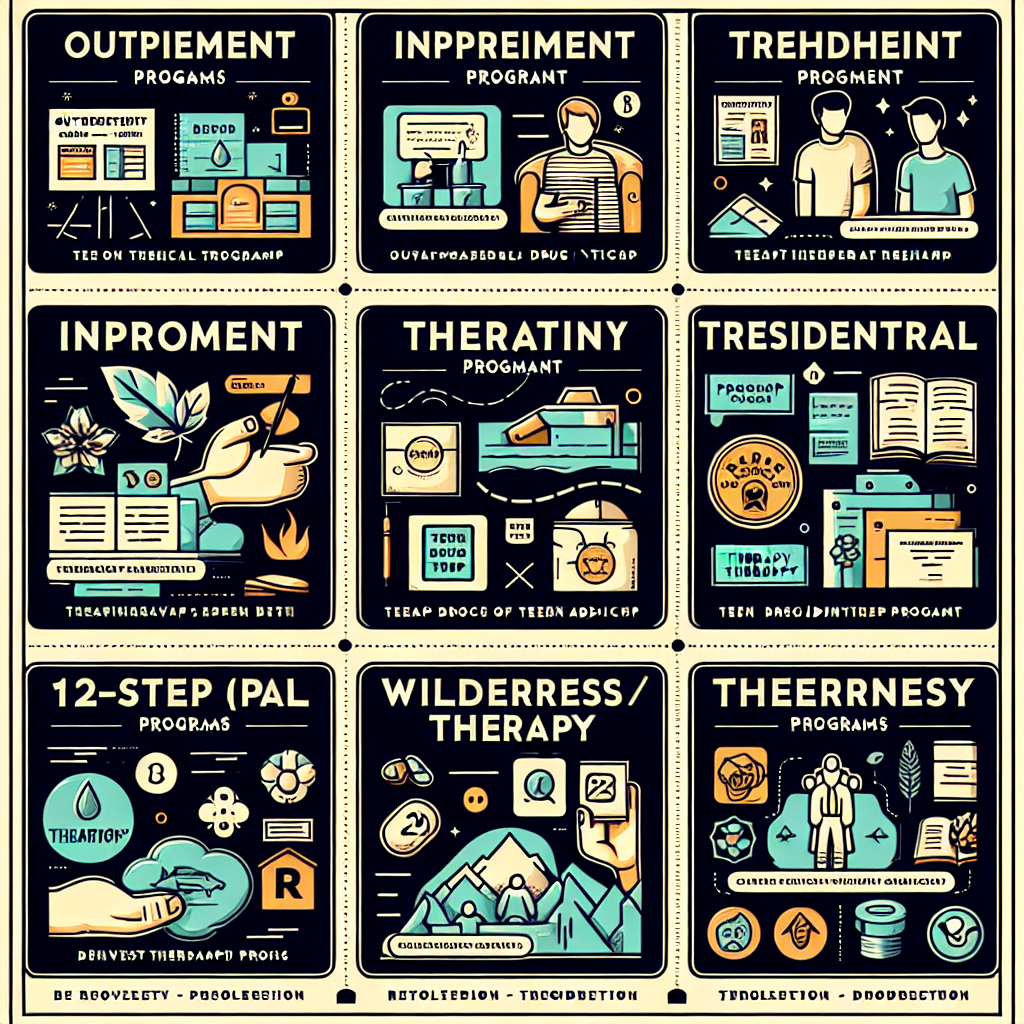-
Table of Contents

“Empowering Recovery: Navigating the Path to Freedom from Gambling for Young Adults”
Introduction
Understanding the rehab process for young adults with gambling problems is crucial for addressing the unique challenges faced by this demographic. Gambling addiction, often overlooked compared to substance abuse, can have devastating effects on an individual’s financial stability, mental health, and personal relationships. The rehabilitation process typically involves a combination of psychological counseling, behavioral therapy, and support groups tailored to the needs of young adults. Early intervention is key, as younger individuals are more susceptible to developing long-term addictive behaviors. By comprehensively addressing the underlying issues and providing continuous support, the rehab process aims to equip young adults with the tools necessary to overcome their addiction and lead healthier, more balanced lives.
Steps to Recovery: Navigating the Rehab Process for Young Adults with Gambling Problems
Understanding the rehab process for young adults with gambling problems is crucial for those seeking to reclaim their lives from the grip of addiction. The journey to recovery is often challenging, but with the right support and a structured approach, it is entirely possible to overcome this debilitating issue. The first step in the rehab process is acknowledging the problem. For many young adults, this can be the most difficult part, as gambling addiction often comes with a sense of shame and denial. However, recognizing the need for help is a powerful and courageous act that sets the stage for recovery.
Once the problem is acknowledged, the next step involves seeking professional help. This can take various forms, including therapy, counseling, and support groups. Professional therapists who specialize in gambling addiction can provide invaluable guidance and support. They help individuals understand the underlying causes of their addiction, which often include emotional and psychological factors such as stress, anxiety, and depression. By addressing these root causes, therapists can help young adults develop healthier coping mechanisms.
In addition to individual therapy, group counseling sessions can be particularly beneficial. These sessions offer a supportive environment where individuals can share their experiences and learn from others who are facing similar challenges. The sense of community and shared understanding can be incredibly empowering, helping young adults feel less isolated in their struggles. Moreover, hearing success stories from peers who have successfully navigated the rehab process can serve as a powerful source of inspiration and motivation.
Another critical component of the rehab process is developing a personalized treatment plan. This plan should be tailored to the individual’s specific needs and circumstances, taking into account factors such as the severity of the addiction, any co-occurring mental health issues, and the individual’s personal goals for recovery. A comprehensive treatment plan might include a combination of therapy, medication, lifestyle changes, and ongoing support. For instance, cognitive-behavioral therapy (CBT) is often used to help individuals identify and change negative thought patterns and behaviors associated with gambling.
As young adults progress through their treatment plan, it is essential to focus on building a strong support network. This network can include family members, friends, and mentors who are committed to supporting the individual’s recovery journey. Open communication and understanding within this network are vital, as they provide the emotional backing needed to navigate the ups and downs of the rehab process. Additionally, involving loved ones in the recovery process can help rebuild trust and strengthen relationships that may have been strained by the addiction.
Maintaining long-term recovery requires ongoing effort and commitment. After completing a formal rehab program, young adults should continue to engage in activities that support their sobriety. This might include attending regular support group meetings, participating in recreational activities that do not involve gambling, and continuing with therapy or counseling as needed. Developing new hobbies and interests can also play a significant role in preventing relapse by providing healthy and fulfilling alternatives to gambling.
Ultimately, the rehab process for young adults with gambling problems is a journey of self-discovery and transformation. It requires courage, perseverance, and a willingness to embrace change. While the path to recovery may be fraught with challenges, it is also filled with opportunities for growth and renewal. By taking proactive steps and seeking the right support, young adults can break free from the cycle of addiction and build a brighter, more fulfilling future.
Key Components of Effective Rehab Programs for Young Adults Battling Gambling Addiction
Understanding the rehab process for young adults with gambling problems requires a comprehensive look at the key components of effective rehab programs. These programs are designed to address the unique challenges faced by young adults, providing them with the tools and support necessary to overcome their addiction and build a healthier future. One of the most critical elements of an effective rehab program is a thorough assessment and personalized treatment plan. This initial step involves evaluating the individual’s gambling behavior, mental health status, and any co-occurring disorders. By understanding the specific needs and circumstances of each young adult, professionals can tailor a treatment plan that addresses the root causes of their addiction and sets realistic goals for recovery.
Another essential component is the incorporation of evidence-based therapies. Cognitive-behavioral therapy (CBT) is particularly effective in helping young adults recognize and change the thought patterns and behaviors that contribute to their gambling addiction. Through CBT, individuals learn to identify triggers, develop coping strategies, and build resilience against relapse. Additionally, motivational interviewing can be instrumental in enhancing the individual’s commitment to change by exploring their ambivalence and reinforcing their intrinsic motivation to recover.
Support groups and peer networks also play a vital role in the rehab process. Young adults often benefit from connecting with others who are facing similar challenges, as it fosters a sense of community and reduces feelings of isolation. Group therapy sessions provide a safe space for sharing experiences, offering mutual support, and learning from one another. These interactions can be incredibly empowering, as they remind individuals that they are not alone in their journey and that recovery is possible.
Family involvement is another crucial aspect of effective rehab programs. Gambling addiction can strain relationships and create significant stress within the family unit. By involving family members in the treatment process, rehab programs can help repair these relationships and build a supportive home environment. Family therapy sessions can address communication issues, educate loved ones about the nature of addiction, and develop strategies for providing ongoing support. This holistic approach ensures that the young adult has a strong support system both during and after rehab.
Moreover, life skills training is an integral part of the rehab process. Many young adults with gambling problems may have neglected important aspects of their lives, such as education, employment, and personal development. Rehab programs often include vocational training, educational support, and life skills workshops to help individuals rebuild their lives and achieve long-term success. By equipping them with practical skills and resources, these programs empower young adults to create a fulfilling and balanced life beyond their addiction.
Finally, aftercare and ongoing support are essential for maintaining long-term recovery. Effective rehab programs recognize that the journey to recovery does not end with the completion of a treatment program. Continued support through follow-up counseling, support groups, and relapse prevention strategies is crucial for sustaining progress and preventing relapse. By providing a continuum of care, rehab programs ensure that young adults have the necessary resources and guidance to navigate the challenges of post-rehab life.
In conclusion, understanding the rehab process for young adults with gambling problems involves recognizing the key components of effective rehab programs. Through personalized treatment plans, evidence-based therapies, support groups, family involvement, life skills training, and ongoing support, these programs offer a comprehensive approach to recovery. By addressing the unique needs of young adults and providing them with the tools and support they need, rehab programs inspire hope and empower individuals to overcome their addiction and build a brighter future.
Q&A
1. **Question:** What are the initial steps in the rehab process for young adults with gambling problems?
**Answer:** The initial steps typically include a comprehensive assessment to understand the extent of the gambling problem, followed by the development of a personalized treatment plan that may involve therapy, counseling, and possibly medication.
2. **Question:** What types of therapy are commonly used in the rehab process for young adults with gambling problems?
**Answer:** Common types of therapy include Cognitive Behavioral Therapy (CBT), which helps individuals change their gambling behaviors and thought patterns, and group therapy, which provides support and shared experiences from peers facing similar challenges.
Conclusion
Understanding the rehab process for young adults with gambling problems involves recognizing the unique psychological, social, and developmental challenges they face. Effective rehabilitation programs should incorporate comprehensive assessments, individualized treatment plans, and a combination of therapeutic approaches such as cognitive-behavioral therapy, family therapy, and peer support groups. Additionally, addressing co-occurring mental health issues, providing education on financial management, and fostering a supportive environment are crucial for long-term recovery. Continuous follow-up and aftercare services are essential to help young adults maintain their progress and prevent relapse. Overall, a holistic and tailored approach is key to successfully rehabilitating young adults with gambling problems.



